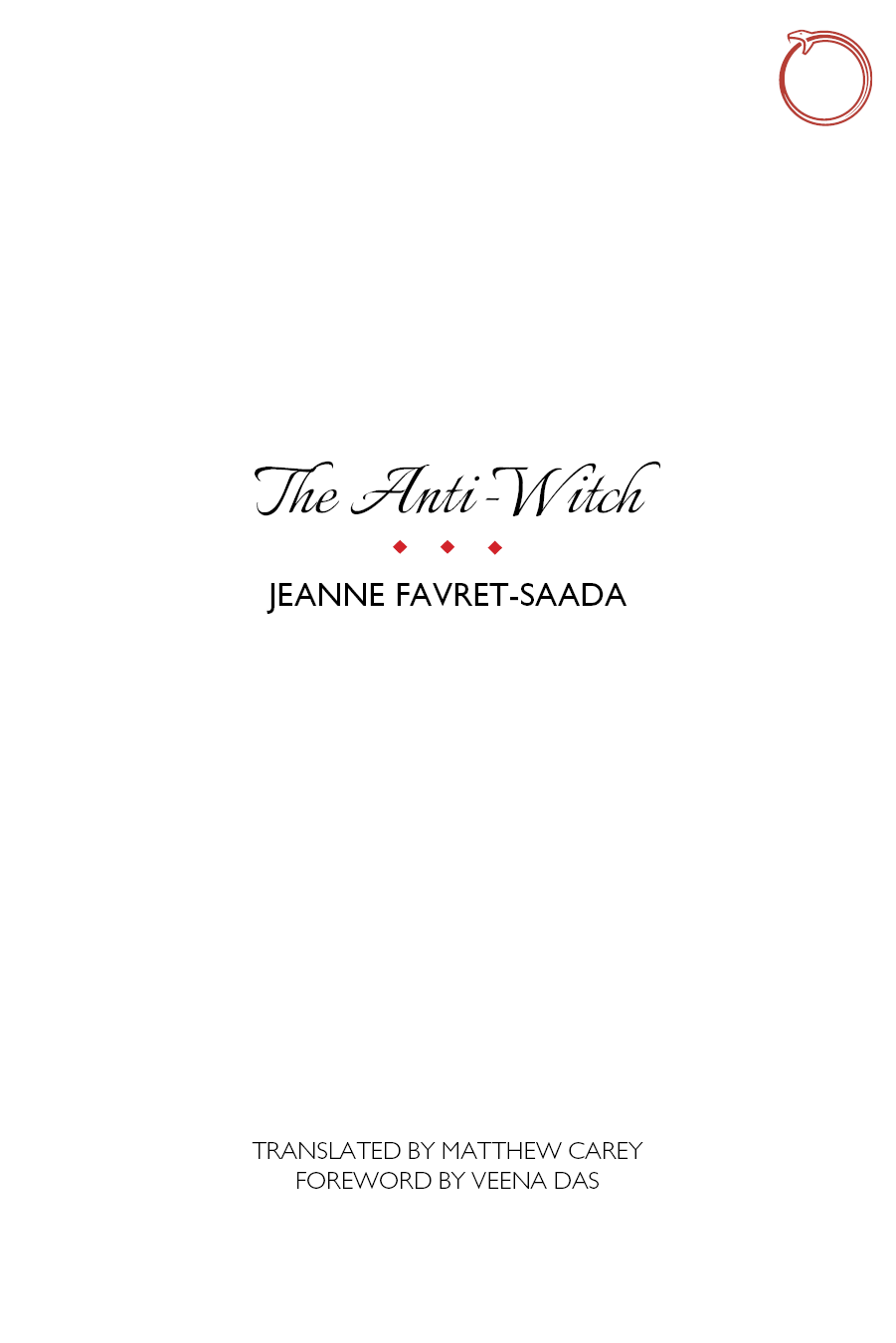Jeanne Favret-Saada: The Anti-Witch (2009/2015)
Filed under book | Tags: · anthropology, ethnography, psychoanalysis, witchcraft

“A synthesis of ethnographic theory and psychoanalytic revelation, where the line between researcher and subject is blurred—if not erased—The Anti-Witch develops the contours of an anthropology of therapy, while deeply engaging with what it means to be caught in the logic of witchcraft. Through an intimate and provocative sharing of the ethnographic voice with Madame Flora, a “dewitcher,” Favret-Saada delivers a critical challenge to some of anthropology’s fundamental concepts.
Of interest to practitioners of psychoanalysis as well as to anthropologists, The Anti-Witch will bring a new generation of scholars into conversation with the work of a truly innovative thinker.”
First published as Désorceler, Éditions de l’Olivier, Paris, 2009.
Translated by Matthew Carey
Foreword by Veena Das
Publisher HAU Books, 2015
Open Access
ISBN 9780990505044
140 pages
Reviews: Arnaud Esquerre (Gradhiva, FR), Catherine Laurent-Chatelain (Société Psychanalytique, FR), Xavier Houssin (Le Monde, FR).
HTML (on publisher’s website)
Comment (0)Philippe Pignarre, Isabelle Stengers: Capitalist Sorcery: Breaking the Spell (2005–) [FR, EN]
Filed under book | Tags: · activism, capitalism, magic, philosophy, protest, resistance, witchcraft

“If denunciation were effective, capitalism would have disappeared a long time ago. But denunciation is never enough. Capitalism is a system that reinvents itself permanently, through the creation of infernal alternatives, alternatives which take us all hostage: ‘if we don’t cut the deficit, we’ll never regain our competitiveness’.
In other traditions than that of the moderns, this sort of paralysis would be described as sorcery. Capitalist Sorcery takes this idea seriously – literally – and explores the consequences of our vulnerability to a system which daily recruits the minions that it needs to cast its spells.
Proposing a pragmatic reading of Marx, a reading which seeks to ward off the thoughtlessness encouraged by the theme of progress and the resignation that arises from accepting that capitalism is the ‘only game in town’, the authors look at how we can protect ourselves from the logic which – from financial collapse through GM foods to oil spills and climate catastrophe – runs scared of the cry ‘another world is possible’.”
La sorcellerie capitaliste: Pratiques de désenvoûtement
Afterword by Anne Vièle
Publisher La Découverte, Paris, 2005
ISBN 2707143979
228 pages
English edition
Translated and edited by Andrew Goffey
Publisher Palgrave Macmillan, 2011
ISBN 0230237622, 9780230237629
224 pages
La sorcellerie capitaliste (French, 2005)
Capitalist Sorcery (English, 2011)
Eugene Thacker: In the Dust of This Planet (2011)
Filed under book | Tags: · black metal, demonology, horror, magic, mysticism, occultism, occultural studies, philosophy, supernatural, theology, witchcraft

The world is increasingly unthinkable, a world of planetary disasters, emerging pandemics, and the looming threat of extinction. In this book Eugene Thacker suggests that we look to the genre of horror as offering a way of thinking about the unthinkable world. To confront this idea is to confront the limit of our ability to understand the world in which we live – a central motif of the horror genre.
In the Dust of This Planet explores these relationships between philosophy and horror. In Thacker’s hands, philosophy is not academic logic-chopping; instead, it is the thought of the limit of all thought, especially as it dovetails into occultism, demonology, and mysticism. Likewise, Thacker takes horror to mean something beyond the focus on gore and scare tactics, but as the under-appreciated genre of supernatural horror in fiction, film, comics, and music. This relationship between philosophy and horror does not mean the philosophy of horror, if anything, it means the reverse, the horror of philosophy: those moments when philosophical thinking enigmatically confronts the horizon of its own existence. For Thacker, the genre of supernatural horror is the key site in which this paradoxical thought of the unthinkable takes place.
Publisher Zero Books, Winchester, UK / Washington, USA, 2011
Horror of Philosophy vol. 1
ISBN 184694676X, 9781846946769
179 pages
author (Occultural studies blog at Metamute.org)
PDF (EPUB; updated on 2012-7-25)
Comment (0)
